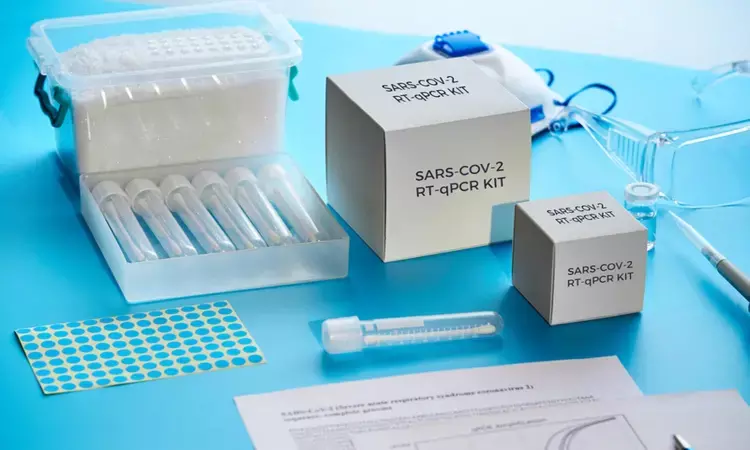- Home
- Medical news & Guidelines
- Anesthesiology
- Cardiology and CTVS
- Critical Care
- Dentistry
- Dermatology
- Diabetes and Endocrinology
- ENT
- Gastroenterology
- Medicine
- Nephrology
- Neurology
- Obstretics-Gynaecology
- Oncology
- Ophthalmology
- Orthopaedics
- Pediatrics-Neonatology
- Psychiatry
- Pulmonology
- Radiology
- Surgery
- Urology
- Laboratory Medicine
- Diet
- Nursing
- Paramedical
- Physiotherapy
- Health news
- Fact Check
- Bone Health Fact Check
- Brain Health Fact Check
- Cancer Related Fact Check
- Child Care Fact Check
- Dental and oral health fact check
- Diabetes and metabolic health fact check
- Diet and Nutrition Fact Check
- Eye and ENT Care Fact Check
- Fitness fact check
- Gut health fact check
- Heart health fact check
- Kidney health fact check
- Medical education fact check
- Men's health fact check
- Respiratory fact check
- Skin and hair care fact check
- Vaccine and Immunization fact check
- Women's health fact check
- AYUSH
- State News
- Andaman and Nicobar Islands
- Andhra Pradesh
- Arunachal Pradesh
- Assam
- Bihar
- Chandigarh
- Chattisgarh
- Dadra and Nagar Haveli
- Daman and Diu
- Delhi
- Goa
- Gujarat
- Haryana
- Himachal Pradesh
- Jammu & Kashmir
- Jharkhand
- Karnataka
- Kerala
- Ladakh
- Lakshadweep
- Madhya Pradesh
- Maharashtra
- Manipur
- Meghalaya
- Mizoram
- Nagaland
- Odisha
- Puducherry
- Punjab
- Rajasthan
- Sikkim
- Tamil Nadu
- Telangana
- Tripura
- Uttar Pradesh
- Uttrakhand
- West Bengal
- Medical Education
- Industry
CDSCO, ICMR Release Standard Evaluation Protocols for Diagnostic Kits in India

New Delhi: In a major step towards strengthening diagnostic quality in India, the Indian Council of Medical Research (ICMR) and the Central Drugs Standard Control Organisation (CDSCO) have jointly issued a comprehensive set of standard performance evaluation protocols for in-vitro diagnostic (IVD) kits.
The document provides uniform guidelines for assessing diagnostic kits used in the detection of diseases such as Chikungunya, Dengue, Zika, Malaria, Typhoid, Nipah, Chandipura virus, Respiratory infections, and Tuberculosis.
According to the protocols, the objective of evaluation is to independently validate manufacturers’ claims on sensitivity, specificity, and reliability of diagnostic kits before large-scale deployment in the country.
For this, the guidelines prescribe:
- Use of irreversibly de-identified archived clinical samples for accuracy studies
- Mandatory reference test kits and well-characterised sample panels
- Accreditation requirements for evaluation laboratories (ISO 15189/17025 standards or CDSCO-approved reference labs)
- Exemption from fresh ethical approvals when anonymised leftover clinical samples are used
The protocols cover both laboratory validation and field evaluation methods. For example, separate formats have been prepared for ELISA, rapid diagnostic tests (RDTs), and real-time PCR kits for vector-borne and viral diseases.
"In-vitro Diagnostic (IVDs) play a vital role in early diagnosis of disease, support surveillance and enhance patient care managements. As the healthcare landscape in India continues to evolve, ensuring the quality and performance of IVDs in pre and post market phase is crucial for accurate diagnosis and effective treatment." the Drugs Controller General of India said.
He further added, "It gives me immense pleasure to present this important compendium of Standard In-Vitro Diagnostic (IVD) Evaluation Protocols, jointly developed by the Indian Council of Medical Research (ICMR) and the Central Drugs Standard Control Organization (CDSCO). This collaborative effort marks a significant milestone of the MoU between ICMR and CDSCO aimed at strengthening the IVD testing capacity. This is the first initiative of its kind globally, where standardized evaluation protocols have been developed in collaboration between National regulatory authority and National nodal research Institute to assess the performance of In-Vitro Diagnostic (IVD) kits used for high risk diseases. This document will also serve as a valuable resource by providing a uniform testing protocol and setting minimum standards and acceptance criteria for various critical disease markers."
To view official notification, click on the link below:
https://medicaldialogues.in/pdf_upload/icmr-cdsco-standardivd-301309.pdf
Mpharm (Pharmacology)
Susmita Roy, B pharm, M pharm Pharmacology, graduated from Gurunanak Institute of Pharmaceutical Science and Technology with a bachelor's degree in Pharmacy. She is currently working as an assistant professor at Haldia Institute of Pharmacy in West Bengal. She has been part of Medical Dialogues since March 2021.


